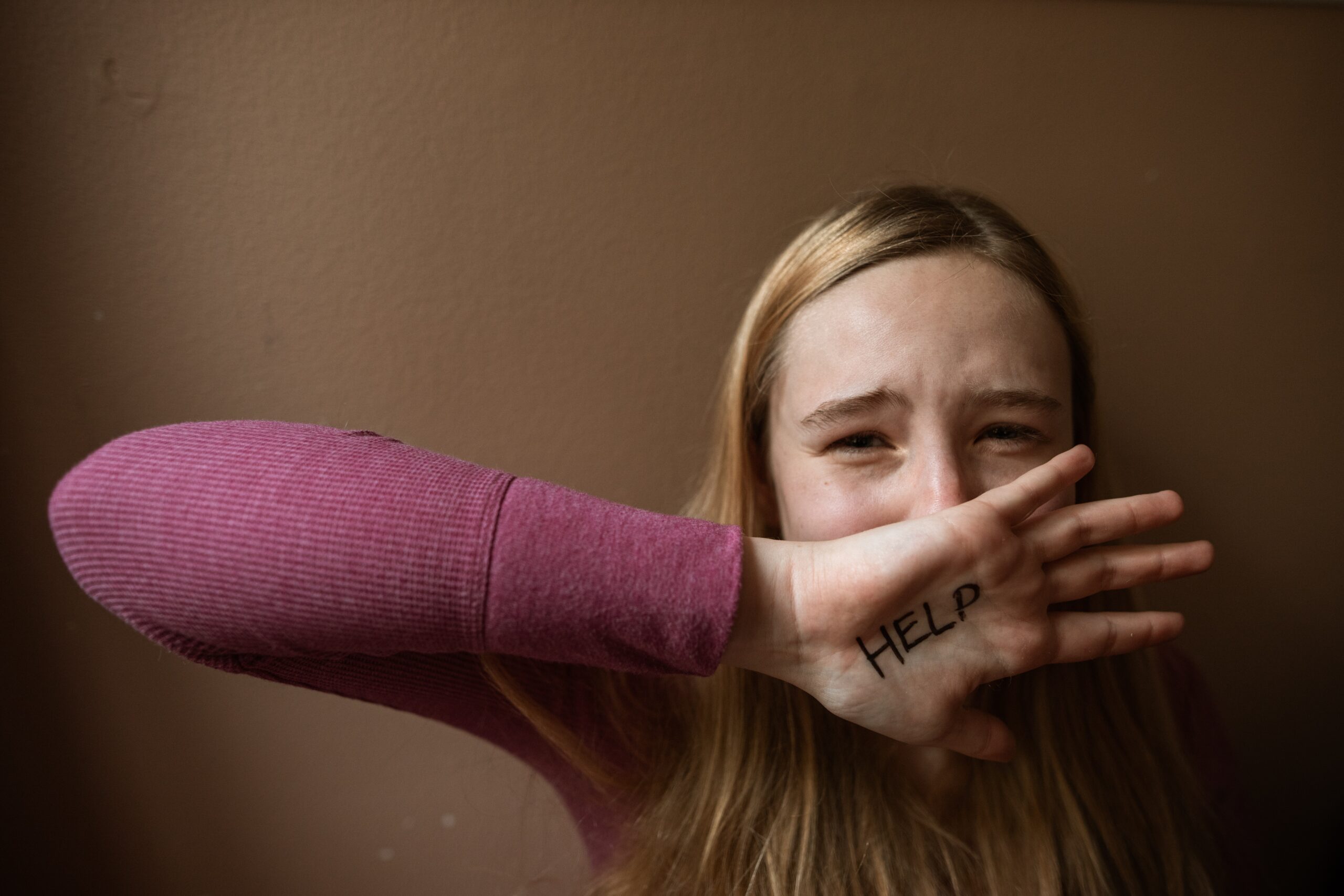![]()
Introduction:
Female foeticide is a process of illegal abortion of a female foetus owing to the only reason that the foetus is a girl. In India, female foeticide has been rampant since preference was given to having a male child over a female child. This was aided by the advent of ultrasound technology which due to its affordability was extensively used in India. This, however, led to a decline in the sex- ratio in India. In order to prevent this malpractice, there arose a need for an efficacious legislation which would counter and resolve this issue.
Need for Pre- Conception and Pre- Natal Diagnostic Techniques (Prohibition of Sex- Selection) Act, 1994 (PCPNDT Act, 1994)
The mal-practice of female foeticide was rampant in India, there were several reasons contributing to the same. Male children were preferred as succession was patrilineal in nature as well as due to cultural convention. It was believed that only a son could take the family name forward. Also, due to the belief that sons would serve their parents in their old age while the daughter would be married off. Therefore, there was a practice by families to have children till a son was born but due to the advent of the ultrasound technology, the malpractice of pre-natal sex determination became predominant. This gave way for an industry of medical professionals who for a price performed selective abortion leading to a decline in the sex ratio. Thus, a need was evident for resolving this issue by framing a coherent legislation.
PCPNDT Act, 1994
It was enacted on 20th Sept., 1994 and amended in 2003. The main objective of this act as per its preamble is before or after conception to prevent the determination of the sex of the child. Also, to monitor the use of pre-natal diagnostic techniques for identifying chromosomal or genetic abnormalities or sex-linked disorders and prohibiting its misuse for sex determination resulting in female foeticide.
Applicability of the Act: The preamble to the Act states that the act shall be applicable to the whole of India except the erstwhile state (now union territory) of Jammu and Kashmir. However, by abrogation of article 370 of the Constitution, this act should now be applicable throughout the territory of India.
Significant provisions of the Act are:
- Superintendence of Genetic Clinic, Genetic Laboratory and Genetic Counselling Centre
- U/s 3(1), registration of the Genetic clinic (GC) or Genetic laboratory (GL) or Genetic Counselling Centre (GCC) is mandatory for carrying out acts regarding pre-natal diagnostic techniques.
- U/s 3A inserted by an amendment in 2003, sex-selection on man or woman or both by any person is forbidden.
- U/s 3B inserted an amendment in 2003, sale of ultra-sound machine or any other machine capable of identifying the sex of the foetus to any GC or GL or GCC not registered under the act is forbidden.
- Superintendence of Pre-natal Diagnostic Techniques
- U/s 4(2), pre-natal diagnostic techniques are permissible only in cases of chromosomal and congenital abnormalities, genetic metabolic disease, sex-linked genetic diseases, haemoglobinopathies or other conditions which the Central Supervisory Board deems fit.
- U/s 4(5) inserted by an amendment in 2003, any sex- selection technique cannot be advocated by any person on the husband or wife or on both.
- U/s 5(2), disclosure of the sex of the foetus by any person such as a person conducting pre-natal diagnostic procedures to the pregnant woman or any of her relative by means of signs or words or otherwise is prohibited.
- U/s 6(c), sex-selection (by any means) before or after conception is prohibited.
- Central Supervisory Body
- U/s 7(1), a central supervisory board is by the central government established and u/s 7(2), it comprises of a Chairman, Vice-Chairman and three other members who are appointed by the Central Government.
- U/s 16, its functions are enumerated, such as superintending the enforcement of the act and the rules made under it and making recommendations to Central Government on use of sex-selection and prenatal diagnostic techniques as well as against its misuse.
- U/s 16A inserted by an amendment in 2003, state and union territory supervisory boards are constituted.
- Appropriate Authority and Advisory Committee
- U/s 17 (1) and (2), one or more appropriate authority is appointed by the Central Government for every union territory by a notification in the Official Gazette and by the State Government for a part of the whole of the state, respectively.
- U/s 17 (4), its functions are enumerated such as superintending enforcement of the Act and examining complaints contravening the provisions of the act.
- U/s 17 (5), an advisory committee can be constituted by the central or state government for every Appropriate Authority and one member shall be appointed by it to be the Chairman of the commission. Its function is to make recommendations to the appropriate authority with regard to the discharge of its functions.
- Genetic Laboratories (GL), Genetic Clinics (GC) and Genetic Counselling Centre’s (GCC) Registration
- U/s 18(1), After the inception of the Pre-natal Diagnostic Techniques (Regulation and Prevention of Misuse) Amendment Act, 2002 no GC or GL or GCC that detects the sex of the foetus can render its services unless it is registered under it.
- U/s 19(1) and (3), the registration certificate is allocated by the appropriate authority and it can cancel the registration if it considers that doing so is necessary in the existing circumstances, respectively.
- Offences and Punishments
- U/s 22(1) and (2), publication of advertisements through the internet or otherwise by any organization including the GC or GL or GCC or any person that provides services for pre-natal sex determination of sex or sex-selection before conception is available and advertisements regarding pre-conception selection of sex or pre-natal determination by any methods scientific or others is forbidden, respectively.
- U/s 22(3), breaching provisions of S. 22(1) and (2) is punishable with a fine of up to ten thousand rupees and with imprisonment up to three years.
- U/s 23(1), if any of the provisions of this act are breached by the owner of a GC, GL,GCC or by any registered medical professional(RMC) who works in the aforementioned places will be liable to pay a fine up to ten thousand rupees and can be imprisoned for up to three years and liable for fines up to fifty thousand rupees and imprisonment up to five years in case of a successive conviction.
- U/s 23(2), the State Medical Council can take requisite steps when the appropriate authority communicates to it the RMC’s name and it may during the pendency of proceedings suspend the registration and if convicted for the first time have his name removed from the Council’s register for a period of five years and in case of a successive offence in the future, be permanently removed.
- U/s 23(3), A fine of rupees fifty thousand and imprisonment up to three years would be awarded to a person who takes the assistance of a GC, GL or GCC or RMC or any other person for administering on any pregnant woman pre-natal sex diagnostic techniques or sex-selection for any reason other than the ones given u/s 4(2) on first conviction and an imprisonment of up to five years and fine up to one lakh rupees in case of successive conviction.
- U/s 23(4) where a woman was compelled to undertake such selection or diagnostic technique, the provisions of S.23(3) will not be applicable.
- U/s 24, the court assumes despite the provisions of the Indian Evidence Act,1872 that the husband or other relatives have compelled the woman to go through prenatal diagnostic technique for a reason not covered u/s.4(2) and can be charged with abetment of offence u/s 23(3), save if the contradictory is proved.
- U/s 25, Imprisonment up to three months or fine up to thousand rupees or both is awarded to persons in case of contravention of the rules framed under this act and its provisions for which no penalty has been provided in the Act and in case this violation carries on after first conviction an ancillary fine up to five hundred rupees per day for the time period that it subsists.
- U/s 26(1), where a company commits a crime under the provisions of this Act, all persons who were managing, those accountable to the company and the company itself are considered guilty of the same and duly punished except if it is proved that the commission of the offence was without their cognizance and that due diligence was done by the persons to avert the commission of such offence.
If the company has committed an offence and the negligence and consent has been given by its directors, secretary or manager or other officer which is proved, then despite what is stated in sub-section (1) they will be appropriately punished. - U/s 27, it has been stated that all offences under this act are non-compoundable, cognizable and non-bailable.
- U/28(2), Only the Judicial Magistrate First Class or the Metropolitan Magistrate have the jurisdiction to try offences which are punishable under this Act.
Role of Sting Operations
The PCPNDT Act forbids sex-determination however sex-determination clinics had been proliferating. NGOs have adopted sting operations as a means for nabbing such doctors. Though the government’s functions cannot be substituted by sting operations they have proven to be highly efficacious. In Dr Nina Mathrani’s case, a sting operation was conducted by Tathapi NGO and Janwadi Mahila Sangathana wherein a pregnant woman and her husband had been sent to lure Dr. Mathrani and Dr Ranade. Under the PCPNDT Act, Dr Nina Mathrani was convicted by the Judicial Magistrate First Class and was sentenced to three years of rigorous imprisonment and a fine of ten thousand rupees in 2011, for conducting sex determination activities.
The Dalit Mahila Vikas Mandal, has carried out a chain of sting operations on several doctors in Navi Mumbai, Thane and Satara. It has nabbed several doctors who were indulging in such illegal activities. Although it has proved to be efficient there are certain impediments that have reduced its usage such as the employment of sign language by the doctors to disclose the sex of the child.
Social Impact of this Act
As aforementioned the mal-practice of female foeticide has been prevalent in the Indian society since time immemorial, which has led to a skewed sex – ratio. This act has attempted to bring reform in our society and resolve the issue that has plagued our society for decades.
This act through the imposition of strict penalties aims to deter persons from engaging in such malpractices. Thus, it has proved to be a big step towards eradication of the social evil and towards mending the sex ratio. Through this act, significant reform is brought in the society which had always given preference to male children for several reasons such as patrilineal succession and cultural convention. By preventing female foeticide in addition to balancing out the sex ratio it will reform the minds of the people of the society. By spreading awareness and educating people regarding this evil practice it can be eradicated. This would lead to the establishment of a more reformed and developed society wherein daughters would be treated as equals to sons.
Case Laws
Vinod Soni and Another v. Union of India:[1] Here, u/a 21 the constitutional validity of the PCPNDT Act was challenged. It was contended on the behalf of the petitioner that the scope of article 21 had been expanded by the Supreme Court in various cases and that the right to life and personal liberty also included the right to choose the sex of the child. Thus, the nature of the family could be ascertained by the parents while exercising the right u/a 21. However, the Bombay High Court opined that the right to choose the sex of the child before conception cannot be considered a right u/a 21 and thus, was not an infringement of article 21.
Malpani Infertility Clinic Pvt. Ltd. v. Appropriate Authority PNDT Act:[2] The petition endeavoured to challenge the order passed by respondent no.1 under the PCPNDT Act, suspending the first petitioner’s Diagnostic Centre’s registration. The court opined that prosecution is empowered by the breach of S.23(1) and several other rules made under this Act and that the petition had no merit and hence was dismissed.
Centre for Enquiry into Health and Allied Themes (CEHAT) and Others v. Union of India and Others:[3] In this case, the Supreme Court recognizing the grave situation of female foeticide gave directions and orders to the Central and State governments and to Union territories as well as the Central Supervisory Board for the efficacious enforcement of the Act.
Hemanta Rath v. Union of India and Others:[4] The petitioner by this petition made a complaint about the State of Orissa’s inaction in enforcement of the PCPNDT Act. The court directed the Orissa Government to rigorously enforce the provisions of this act and to constitute committees for the same.
Conclusion
India has been a country infested with several social evils among which female foeticide is a pressing issue. While the PCPNDT Act and the amendments to it are a great advancement, they fail to be sufficient. This is evident by the census wherein the child sex ratio is skewed. Undoubtedly, medical technology is a cause for the growth of female foeticide but it essentially is a social evil. Educating and spreading awareness among people about the illegality of prenatal sex- selection would prove beneficial in its eradication. Additionally, the provisions of this Act can be made more severe so as to deter people from indulging in such activities. Thus, while progress has been made on this issue there is still a long path to tread.
References:
1.Pre- Conception and Pre- Natal Diagnostic Techniques (Prohibition of Sex- Selection) Act, 1994, INDIA CODE (16th Oct., 2020, 8:30 PM), https://www.indiacode.nic.in/bitstream/123456789/8399/1/pre-conception-pre-natal-diagnostic-techniques-act-1994.pdf.
2. Pre- Conception and Pre- Natal Diagnostic Techniques (Prohibition of Sex- Selection) Act, 1994, BYJU’S (16th Oct., 2020, 8;45 PM), https://byjus.com/free-ias-prep/pre-conception-and-pre-nantal-diagnostic-techniques-prohibition-of-sex-selection-act-1994/.
3. The Pre- Natal Diagnostic Techniques (Regulation and Prevention of Misuse) Amendment Act,2002, Indian Kanoon (17th Oct.,2020, 2:05 PM), https://indiankanoon.org/doc/19033/.
4. Vinod Soni and Another v. Union of India, 2005 Cri.L.J. Bom. 3408, Indian Kanoon (18th Oct., 2020, 12 PM), https://indiankanoon.org/doc/457104/#:~:text=First%2C%20it%20violates%20Article%2014,of%20the%20Constitution%20of%20India.&text=Reliance%20was%20placed%20on%20several,liberty%20embodied%20under%20Article%2021.
5. Malpani Infertility Clinic Pvt. Ltd. v. Appropriate Authority PNDT Act, Indian Kanoon (18th Oct.,2020,3:20 PM), https://indiankanoon.org/doc/394401/.
6. Prerana Thakurdesai, NGOs opt for sting operations to curb pre-natal sex tests, INDIA TODAY (18th Oct., 2020, 3:25 PM), https://www.indiatoday.in/magazine/gender/story/20061204-sting-operations-in-sex-determination-clinics-across-india-2006-784249-2006-12-04.
7. Prachee Kulkarni, PCPNDT Act case from 2011 sees conviction of accused doctor, Pune Mirror (18th Oct., 2020, 4:30 PM), https://punemirror.indiatimes.com/pune/crime/pcpndt-act-case-from-2011-sees-conviction-of-accused-doc/articleshow/69332799.cms.
8. Shah, Centre for Enquiry into Health and Allied Themes (CEHAT) and Others v. Union of India and Others on 10th September,2003, Indian Kanoon (19th Oct.,2020, 2 PM), https://indiankanoon.org/doc/910275/.
9. A. Ganguly, Hemanta Rath v. Union of India and Others on 14th February, 2008, Indian Kanoon (19th Oct., 2020, 2:20 PM), https://indiankanoon.org/doc/1582369/.
Cases:
[1] Vinod Soni and Another v. Union of India, 2005 Cri.L.J. Bom. 3408 (India).
[2] Malpani Infertility Clinic Pvt. Ltd. v. Appropriate Authority PNDT Act, A.I.R 2005 Bom. 26 (India).
[3] Centre for Enquiry into Health and Allied Themes (CEHAT) and Others v. Union of India and Others, 10th Sept.,2003 (India).
[4] Hemanta Rath v. Union of India and Others, A.I.R 2008 Ori. 71 (India).



0 Comments